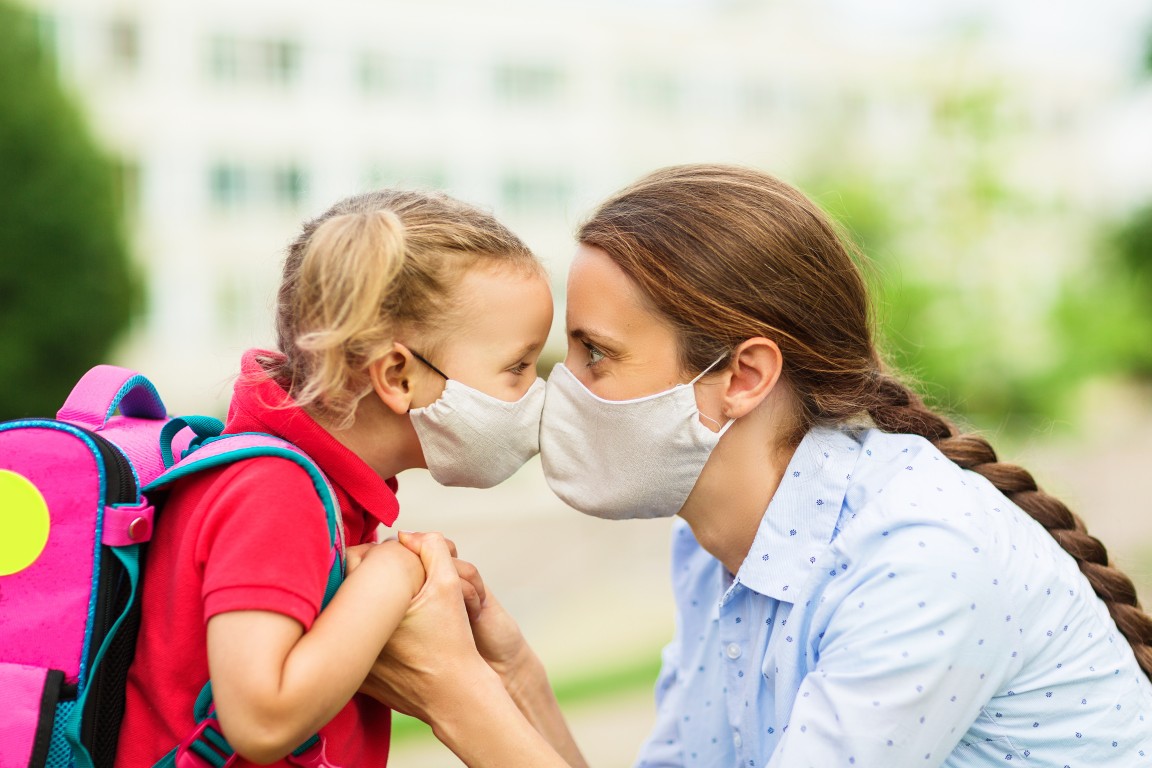Parents optimistic and less anxious since children’s return to school

More parents are comfortable about their children’s return to in-school learning than at the start of the school year, according to a new survey by the National Parent Teachers Association. Their negative emotions in August at the onset of the school year have been replaced by an increasingly more positive approach now.
Read More »Worries and anxiety that parents felt about following safety measures have decreased over the time that their children have been behind their desks again.
Not only are parents pleased with their children’s safety and progress, but the feelings of frustration, anxiety, confusion, anger, and sadness that many parents—and their children—felt at the onset of the school year have eased considerably.
Children also happier
The survey found that children share their parents feelings. They also were more excited, happier, safer, and calmer than they had been before the return to school, their parents reported.
The survey of almost 1,500 parents and guardians of grade school children was taken in November. The findings in that poll were compared with an earlier survey conducted by the National PTA in August when the school year began. The latest survey was taken before the emergence of the Omicron variant toward the end of 2021.
Reassuring for teachers
These findings are reassuring for teachers, staff, and K-12 administrators who have been working for countless hours to overcome unprecedented and prolonged challenges, says Dr. Kathleen A. Ethier, director of the CDC’s Division of Adolescent and School Health, the lead center in the CDC for addressing and monitoring school-based health. She adds that their tireless endeavors are making a difference in a number of ways, including the students’ mental health as well as that of their parents.
Students benefit from learning in person, the National PTA says. Schools play a vital role in helping students feel connected and providing them with health education.
Improved perspective
Caregivers and teachers should feel encouraged by the change in perspective that was found in the November survey compared with that in August, points out Anna King, president of the National PTA. Clearly, after the children returned to school parents became confident that the school was able to address their children’s needs for safety and health as well as their emotional and social needs, she says.
The survey’s findings also showed that parents were able to identify new resources that their schools developed to meet the children’s emotional and social concerns, she adds.
King calls the results of the survey an encouraging indication that teachers and school staff will be able to address evolving concerns about COVID-19 and the challenges that it poses.
Exposed to the virus
Although almost half of the parents interviewed for the poll said that they had received notice during the first months of the 2021-2022 school year that their children might have been exposed to COVID, about two-thirds of parents still feel happier now that their children are attending school in-person.
The survey was taken at a time when parents were more optimistic about the return of their children to the classroom, says Dr. Judy Monroe, president and CEO of the Centers for Disease Control Foundation. Today, she adds, it is more critical that children who are eligible are vaccinated and that they practice safe measures while at school.
Children are our largest treasure, she says, and they need to be protected by us.
She recommends that all staff, teachers, and students who are eligible be vaccinated as soon as they can be. The CDC recommends, too, that everyone over the age of 5 should receive a COVID-19 vaccination and everyone over the age of 12 should received a booster shot.
Other findings
The survey also found:
• About two-thirds of the parents polled said their children are attending school in the way that they prefer, whether it be in-person full time, through remote or virtual learning, or a hybrid model.
• A major worry of caregivers is that their child might contract COVID-19 at school. This concern is greatest among people of color. Whereas 61% of all parents were concerned about their children contracting the virus, 75% of Hispanic parents and 66% of black parents expressed this concern.
• Many parents are actively involved in supporting the mental health of their children. They are expecting continued support for the emotional and social wellbeing of their children both at school as well as at home.
• The desire for emotional and social support was higher among those parents in areas where schools were shut down at some time during the school year because of concerns about COVID-19.





